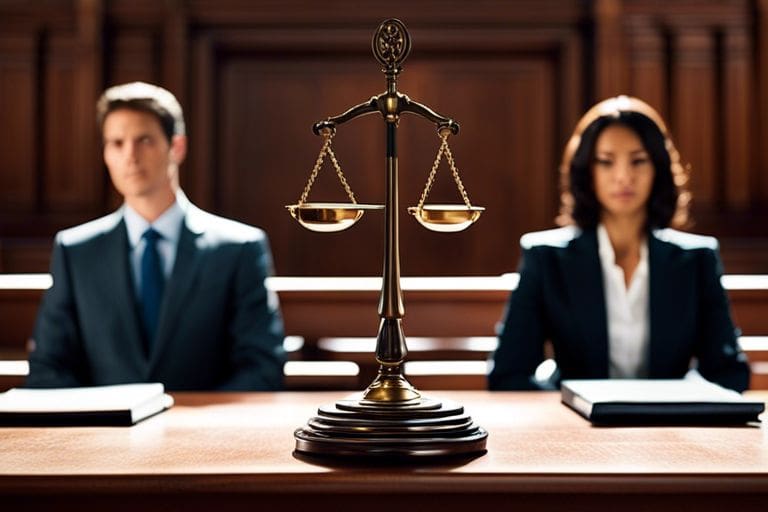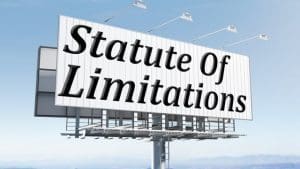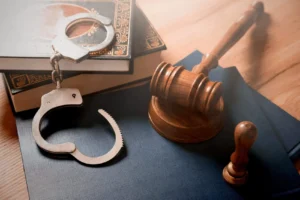How Do Lawyers Challenge Witness Credibility with Cross-Examination?
Cross-examination is a crucial component of the legal process, particularly in trials. It is a method by which a lawyer questions a witness called by the opposing party, aiming to challenge the credibility of the testimony or to elicit favorable facts. Mastering the art of cross-examination can significantly influence the outcome of a case, making it an indispensable skill for any lawyer.
Understanding the Basics of Cross-Examination
The primary goal of cross-examination is to test the credibility and reliability of the witness’s testimony. This involves asking strategic questions that may expose inconsistencies, highlight biases, or reveal gaps in the witness’s knowledge. A well-executed cross-examination can undermine the opposing party’s case and strengthen your own.
Effective cross-examination requires meticulous preparation. Lawyers must thoroughly understand the case, the witness’s prior statements, and the evidence presented. This preparation allows for the development of a coherent strategy aimed at achieving specific objectives during cross-examination.
Developing Effective Questioning Techniques
One of the key aspects of successful cross-examination is the use of leading questions. Leading questions are designed to suggest the answer within the question itself, allowing the lawyer to maintain control over the witness’s responses. For example, instead of asking, “What did you see?” a leading question would be, “You saw the defendant at the scene, didn’t you?”
In addition to leading questions, lawyers should focus on short, clear, and concise questions. This approach minimizes the risk of the witness providing lengthy or evasive answers. Each question should aim to elicit a specific piece of information that supports the lawyer’s case or undermines the opposing party’s position.
Managing Witness Behavior
Witnesses can be unpredictable, and their behavior during cross-examination can impact the effectiveness of the questioning. Lawyers must be adept at managing difficult or hostile witnesses. This involves maintaining a calm and composed demeanor, regardless of the witness’s attitude, and using techniques such as repetition or rephrasing to extract the desired information.
For example, if a witness provides a non-responsive answer, the lawyer can calmly repeat the question or break it down into simpler parts. This persistence can pressure the witness to eventually provide a direct answer.
Leveraging Contradictions and Impeachment
Identifying and exploiting contradictions in a witness’s testimony is a powerful cross-examination technique. Contradictions can arise from discrepancies between the witness’s statements during direct examination and previous statements made during depositions or interviews. Highlighting these inconsistencies can cast doubt on the witness’s reliability and honesty.
Impeachment is another critical tactic used during cross-examination. It involves challenging the witness’s credibility by presenting evidence of prior inconsistent statements, biases, or a lack of knowledge. Impeachment can be particularly effective when the witness’s testimony is central to the opposing party’s case.
Utilizing Expert Witnesses in Cross-Examination
Expert witnesses play a significant role in many trials, providing specialized knowledge and opinions. Cross-examining expert witnesses requires a different approach compared to lay witnesses. Lawyers must have a solid understanding of the subject matter to effectively challenge the expert’s qualifications, methodology, and conclusions.
During cross-examination, lawyers should focus on areas where the expert’s opinion may be vulnerable to attack. This can include questioning the validity of the methods used, the assumptions made, or the expert’s potential biases. By undermining the expert’s credibility, lawyers can weaken the impact of their testimony on the jury.
Preparing for Cross-Examination
Preparation is the cornerstone of successful cross-examination. Lawyers must anticipate the witness’s answers and be ready with follow-up questions. This preparation involves reviewing all available evidence, prior statements, and depositions to identify potential weaknesses in the witness’s testimony.
Additionally, lawyers should develop a clear strategy and outline their objectives for the cross-examination. This strategy should be flexible, allowing for adjustments based on the witness’s responses during direct examination and the dynamics of the courtroom.
Case Study: High-Profile Cross-Examinations
High-profile cases often provide valuable lessons in cross-examination techniques. For instance, the cross-examination of key witnesses in the O.J. Simpson trial demonstrated the importance of meticulous preparation and strategic questioning. Lawyers on both sides used cross-examination to challenge the credibility of witnesses and to introduce doubt into the jury’s mind.
Another example is the cross-examination of Dr. Conrad Murray, Michael Jackson’s physician, during his trial for involuntary manslaughter. The prosecution’s cross-examination focused on inconsistencies in Dr. Murray’s statements and his medical practices, ultimately contributing to his conviction.
The Role of Technology in Cross-Examination
Advancements in technology have transformed the way lawyers approach cross-examination. Tools such as video depositions, digital evidence presentation, and real-time transcription services enhance the efficiency and effectiveness of cross-examination.
Video Depositions
Video depositions allow lawyers to review witness statements and identify inconsistencies more easily. They provide a visual and auditory record that can be played back in court, helping to highlight contradictions and reinforce key points.
Digital Evidence Presentation
Digital evidence presentation tools enable the seamless display of documents, videos, and other evidence in the courtroom, supporting the lawyer’s questioning. These tools can make complex evidence more understandable to the jury and help maintain their attention.
Real-Time Transcription Services
Real-time transcription services provide instant access to the witness’s responses, aiding in the formulation of follow-up questions. This technology allows lawyers to quickly reference previous testimony and adapt their strategy on the fly.
Ethical Considerations in Cross-Examination
Ethical considerations are paramount in cross-examination. Lawyers must adhere to the rules of professional conduct and avoid tactics that are abusive, harassing, or intended to embarrass the witness. Cross-examination should be conducted with integrity, focusing on the pursuit of truth and justice.
For example, questions that are purely speculative or intended to inflame the jury’s emotions are generally considered unethical. Lawyers must strike a balance between vigorously advocating for their client and maintaining the ethical standards of the legal profession.
Continuing Education and Training
Continuing education and training are essential for lawyers to hone their cross-examination skills. Many legal organizations offer courses, workshops, and seminars focused on advanced cross-examination techniques. These programs provide opportunities for lawyers to learn from experienced practitioners and to stay updated on the latest developments in the field.
Participating in mock trials and practice sessions can also enhance a lawyer’s proficiency in cross-examination. These exercises allow lawyers to simulate real-world scenarios, receive feedback, and refine their strategies.
Psychological Aspects of Cross-Examination
Understanding the psychological aspects of cross-examination can significantly enhance a lawyer’s effectiveness. This includes recognizing the emotional and cognitive states of witnesses and leveraging this understanding to elicit truthful and comprehensive responses.
Building Rapport
Building rapport with the witness can help in obtaining more cooperative responses. This involves using a respectful tone, showing empathy, and avoiding aggressive questioning tactics. A witness who feels respected is more likely to provide candid answers.
Psychological Pressure
Applying psychological pressure, when done ethically, can be effective in exposing inconsistencies or eliciting truthful admissions. This can include asking questions that challenge the witness’s memory or confronting them with contradictory evidence.
Cross-Examination in Different Legal Systems
Cross-examination practices can vary significantly between different legal systems. Understanding these differences is crucial for lawyers practicing in international contexts or dealing with cases involving foreign jurisdictions.
Common Law vs. Civil Law Systems
In common law systems, such as those in the United States and the United Kingdom, cross-examination is a fundamental part of the trial process. Lawyers have significant leeway to question witnesses aggressively to test their credibility.
In civil law systems, like those in many European and Asian countries, the role of cross-examination is more limited. Judges play a more active role in questioning witnesses, and lawyers may have fewer opportunities to challenge testimony directly.
International Tribunals
International tribunals, such as the International Criminal Court (ICC) and the International Court of Justice (ICJ), have their own rules and procedures for cross-examination. Lawyers practicing before these bodies must be familiar with the specific guidelines and adapt their strategies accordingly.
Practical Tips for Effective Cross-Examination
Effective cross-examination requires a combination of preparation, strategy, and adaptability. Here are some practical tips to enhance your cross-examination skills:
Tip 1: Know Your Case Inside Out
Thorough knowledge of your case, including all evidence and witness statements, is essential. This allows you to anticipate responses and develop a cohesive strategy.
Tip 2: Plan Your Questions
Plan your questions in advance, but be prepared to adapt based on the witness’s responses. Having a clear objective for each question helps maintain focus and direction.
Tip 3: Control the Witness
Use leading questions to maintain control over the witness’s responses. Avoid open-ended questions that allow the witness to provide lengthy or evasive answers.
Tip 4: Stay Composed
Maintain a calm and professional demeanor, even when dealing with difficult witnesses. Emotional reactions can undermine your credibility and effectiveness.
Tip 5: Be Persistent
If a witness is evasive, be persistent. Rephrase questions, break them into smaller parts, and repeat them if necessary to obtain a direct answer.
Conclusion: Mastering Cross-Examination
Mastering cross-examination is a vital skill for any lawyer involved in litigation. By understanding the principles and techniques of effective questioning, managing witness behavior, leveraging contradictions, and adhering to ethical standards, lawyers can significantly impact the outcome of a trial.
Cross-examination requires a combination of preparation, strategy, and adaptability. Lawyers who excel in cross-examination contribute to the pursuit of justice by thoroughly testing the credibility of witnesses and ensuring that the truth emerges in the courtroom. Attorneys.Media offers valuable resources and insights to help legal professionals enhance their cross-examination skills and achieve success in their cases.
Additional Considerations for Cross-Examination
Delving further into some advanced topics related to cross-examination, including the use of technology, psychological tactics, and comparative practices in different legal systems.
Advanced Use of Technology in Cross-Examination
Modern technology has become an invaluable tool in the courtroom, offering new ways to enhance the effectiveness of cross-examination.
Digital Forensics
Digital forensics involves the use of specialized techniques to recover, analyze, and present digital evidence. This can include emails, text messages, social media posts, and other electronic records. Digital forensics experts can help lawyers uncover crucial evidence and challenge the authenticity or integrity of digital data presented by the opposing party.
Presentation Software
Presentation software, such as PowerPoint and TrialDirector, allows lawyers to create visually compelling presentations that can highlight key points, timelines, and evidence. These tools can be used to support cross-examination by clearly displaying documents, photos, and videos to the jury.
Virtual Reality
Virtual reality (VR) technology is an emerging tool that can recreate crime scenes or accident sites, providing a 3D, immersive experience for the jury. This can help jurors better understand the spatial relationships and dynamics involved in a case, making cross-examination of witnesses more impactful.
Comparative Practices in Different Legal Systems
Understanding how cross-examination is conducted in different legal systems can provide valuable insights for lawyers working in international or comparative law contexts.
Inquisitorial Systems
In inquisitorial systems, such as those found in many European countries, the judge plays a more active role in questioning witnesses. Lawyers have less direct control over cross-examination, and the process is generally more structured and less adversarial than in common law systems.
Mixed Systems
Some countries, like South Africa and Israel, have mixed legal systems that incorporate elements of both common law and civil law traditions. Lawyers practicing in these jurisdictions must be adaptable and familiar with both adversarial and inquisitorial approaches to cross-examination.
Psychological Tactics in Cross-Examination
Psychological tactics can be used to influence witness behavior and responses during cross-examination. These tactics must be used ethically and with a clear understanding of their potential impact.
Building Credibility
Building credibility with the jury is essential for effective cross-examination. This involves demonstrating thorough preparation, asking clear and logical questions, and maintaining a professional demeanor. Credibility can also be enhanced by highlighting inconsistencies or biases in the witness’s testimony.
Creating Cognitive Dissonance
Creating cognitive dissonance involves presenting information that conflicts with the witness’s previous statements or beliefs, causing discomfort and prompting them to reassess their testimony. This can be achieved by presenting contradictory evidence or asking questions that expose logical inconsistencies.
Managing Non-Verbal Cues
Non-verbal cues, such as body language and facial expressions, can provide valuable insights into a witness’s credibility and truthfulness. Lawyers should be observant of these cues and use them to inform their questioning strategy. For example, signs of nervousness or hesitation may indicate that the witness is not being entirely truthful.
Conclusion: Mastering Cross-Examination
Mastering cross-examination is a vital skill for any lawyer involved in litigation. By understanding the principles and techniques of effective questioning, managing witness behavior, leveraging contradictions, and adhering to ethical standards, lawyers can significantly impact the outcome of a trial.
Cross-examination requires a combination of preparation, strategy, and adaptability. Lawyers who excel in cross-examination contribute to the pursuit of justice by thoroughly testing the credibility of witnesses and ensuring that the truth emerges in the courtroom. Attorneys.Media offers valuable resources and insights to help legal professionals enhance their cross-examination skills and achieve success in their cases.
- Rule 611. Mode and Order of Examining Witnesses – Federal Rules of Evidence
- Five Steps to an Effective Cross-Examination – LexisNexis
- A Few Tips on Cross-Examination – New York State Bar Association
- How to Improve Your Cross-Examination – American Bar Association
- Cross-Examining Expert Witnesses: The Ultimate Guide – Expert Institute




















